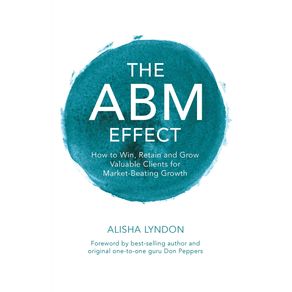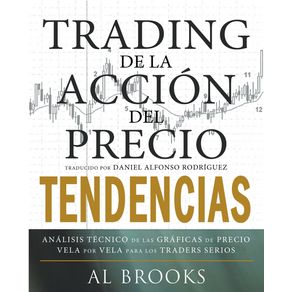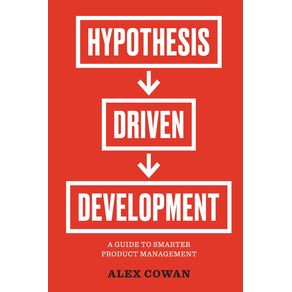| Selo | Heretics Guide Press |
|---|---|
| Edição | 0 |
| Idioma | Inglês |
| Autores | Paul M Culmsee |
| Acabamento | Capa Comum |
| Quantidade de Páginas | 216 |
| Origem | Literatura Estrangeira |
 O milionário de amanhã começa hoje: Como fazer Fortuna com 300 reais
O milionário de amanhã começa hoje: Como fazer Fortuna com 300 reais
Ases da Literatura
R$ 54,90 à vista Como não ser uma vendida (2005)
Como não ser uma vendida (2005)
BUZZ EDITORA
R$ 59,90 à vista Smart Money Concept
Smart Money Concept
Marcus Blackwell
R$ 140,53 ou até 2x sem juros The 2-Hour Workshop Blueprint
The 2-Hour Workshop Blueprint
Big Charlie Press
R$ 138,78 ou até 2x sem juros BlackRock de Larry Fink
BlackRock de Larry Fink
Draft2Digital
R$ 161,25 ou até 3x sem juros Inteligência competitiva e estratégia empresarial
Inteligência competitiva e estratégia empresarial
KS OmniScriptum Publishing
R$ 390,72 ou até 3x sem juros Hidden Repression
Hidden Repression
Bitcoin Magazine Books
R$ 175,17 ou até 3x sem juros Treating People Not Patients
Treating People Not Patients
Ethos Collective
R$ 132,26 ou até 2x sem juros Finance for Development
Finance for Development
Rowman & Littlefield Publishing Group Inc
R$ 276,73 ou até 3x sem juros Organizar para a Complexidade. Como fazer o trabalho funcionar de novo, para criar organizações de alto desempenho
Organizar para a Complexidade. Como fazer o trabalho funcionar de novo, para criar organizações de alto desempenho
Follett Publishing
R$ 121,78 ou até 2x sem juros Value, Historicity, and Economic Epistemology
Value, Historicity, and Economic Epistemology
Springer Nature B.V.
R$ 346,52 ou até 3x sem juros Present and Past Banking in Mexico
Present and Past Banking in Mexico
Legare Street Press
R$ 249,59 ou até 3x sem juros Secrets of Closing the Sale
Secrets of Closing the Sale
Baker Publishing Group
R$ 178,73 ou até 3x sem juros Dressing Modern Frenchwomen
Dressing Modern Frenchwomen
Hopkins Fulfillment Service
R$ 481,71 ou até 3x sem juros Changing the Game
Changing the Game
Greenleaf Book Group
R$ 122,70 ou até 2x sem juros 101 Perguntas sobre Bitcoin
101 Perguntas sobre Bitcoin
INTERMINDS EDITORA
R$ 64,00 à vista The 2-Hour Workshop Blueprint
The 2-Hour Workshop Blueprint
Big Charlie Press
R$ 138,78 ou até 2x sem juros Course Creation Simplified
Course Creation Simplified
Jimmy Naraine
R$ 128,00 ou até 2x sem juros The Almanack of Stanley Druckenmiller
The Almanack of Stanley Druckenmiller
Upgraded Publishing
R$ 154,95 ou até 3x sem juros BlackRock de Larry Fink
BlackRock de Larry Fink
Draft2Digital
R$ 161,25 ou até 3x sem juros BlackRock
BlackRock
Brief History
R$ 78,46 à vista The ABM Effect
The ABM Effect
Momentum ITSMA
R$ 134,56 ou até 2x sem juros Inteligência competitiva e estratégia empresarial
Inteligência competitiva e estratégia empresarial
KS OmniScriptum Publishing
R$ 390,72 ou até 3x sem juros Hidden Repression
Hidden Repression
Bitcoin Magazine Books
R$ 175,17 ou até 3x sem juros Disrupt Disruption
Disrupt Disruption
New Degree Press
R$ 123,13 ou até 2x sem juros Finance for Development
Finance for Development
Rowman & Littlefield Publishing Group Inc
R$ 276,73 ou até 3x sem juros The Highest and Best Use Playbook
The Highest and Best Use Playbook
Balmoral Press
R$ 134,07 ou até 2x sem juros Present and Past Banking in Mexico
Present and Past Banking in Mexico
Legare Street Press
R$ 249,59 ou até 3x sem juros Circus Maximus
Circus Maximus
Rowman & Littlefield Publishing Group Inc
R$ 236,18 ou até 3x sem juros Trading de la Acción del Precio Tendencias
Trading de la Acción del Precio Tendencias
Draft2Digital
R$ 416,85 ou até 3x sem juros O milionário de amanhã começa hoje: Como fazer Fortuna com 300 reais
O milionário de amanhã começa hoje: Como fazer Fortuna com 300 reais
Ases da Literatura
R$ 54,90 à vista Como não ser uma vendida (2005)
Como não ser uma vendida (2005)
BUZZ EDITORA
R$ 59,90 à vista Smart Money Concept
Smart Money Concept
Marcus Blackwell
R$ 140,53 ou até 2x sem juros Hypothesis-Driven Development
Hypothesis-Driven Development
Cook & McDouglas
R$ 198,69 ou até 3x sem juros The 2-Hour Workshop Blueprint
The 2-Hour Workshop Blueprint
Big Charlie Press
R$ 138,78 ou até 2x sem juros The ABM Effect
The ABM Effect
Momentum ITSMA
R$ 134,56 ou até 2x sem juros Disrupt Disruption
Disrupt Disruption
New Degree Press
R$ 123,13 ou até 2x sem juros Quiet Voice Fearless Leader - 10 Principles For Introverts To Awaken The Leader Inside
Quiet Voice Fearless Leader - 10 Principles For Introverts To Awaken The Leader Inside
Frenchtown Publishing
R$ 126,99 ou até 2x sem juros The Highest and Best Use Playbook
The Highest and Best Use Playbook
Balmoral Press
R$ 134,07 ou até 2x sem juros The Failure of Judges and the Rise of Regulators
The Failure of Judges and the Rise of Regulators
Random House
R$ 197,20 ou até 3x sem juros Leading with Strategic Thinking
Leading with Strategic Thinking
John Wiley & Sons
R$ 167,41 ou até 3x sem juros Value, Historicity, and Economic Epistemology
Value, Historicity, and Economic Epistemology
Springer Nature B.V.
R$ 346,52 ou até 3x sem juros Present and Past Banking in Mexico
Present and Past Banking in Mexico
Legare Street Press
R$ 249,59 ou até 3x sem juros Secrets of Closing the Sale
Secrets of Closing the Sale
Baker Publishing Group
R$ 178,73 ou até 3x sem juros Dressing Modern Frenchwomen
Dressing Modern Frenchwomen
Hopkins Fulfillment Service
R$ 481,71 ou até 3x sem juros